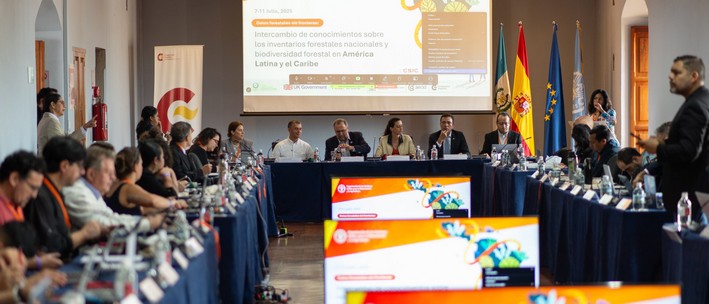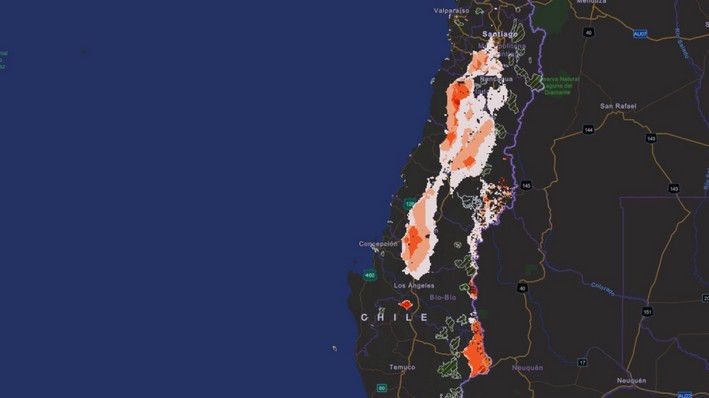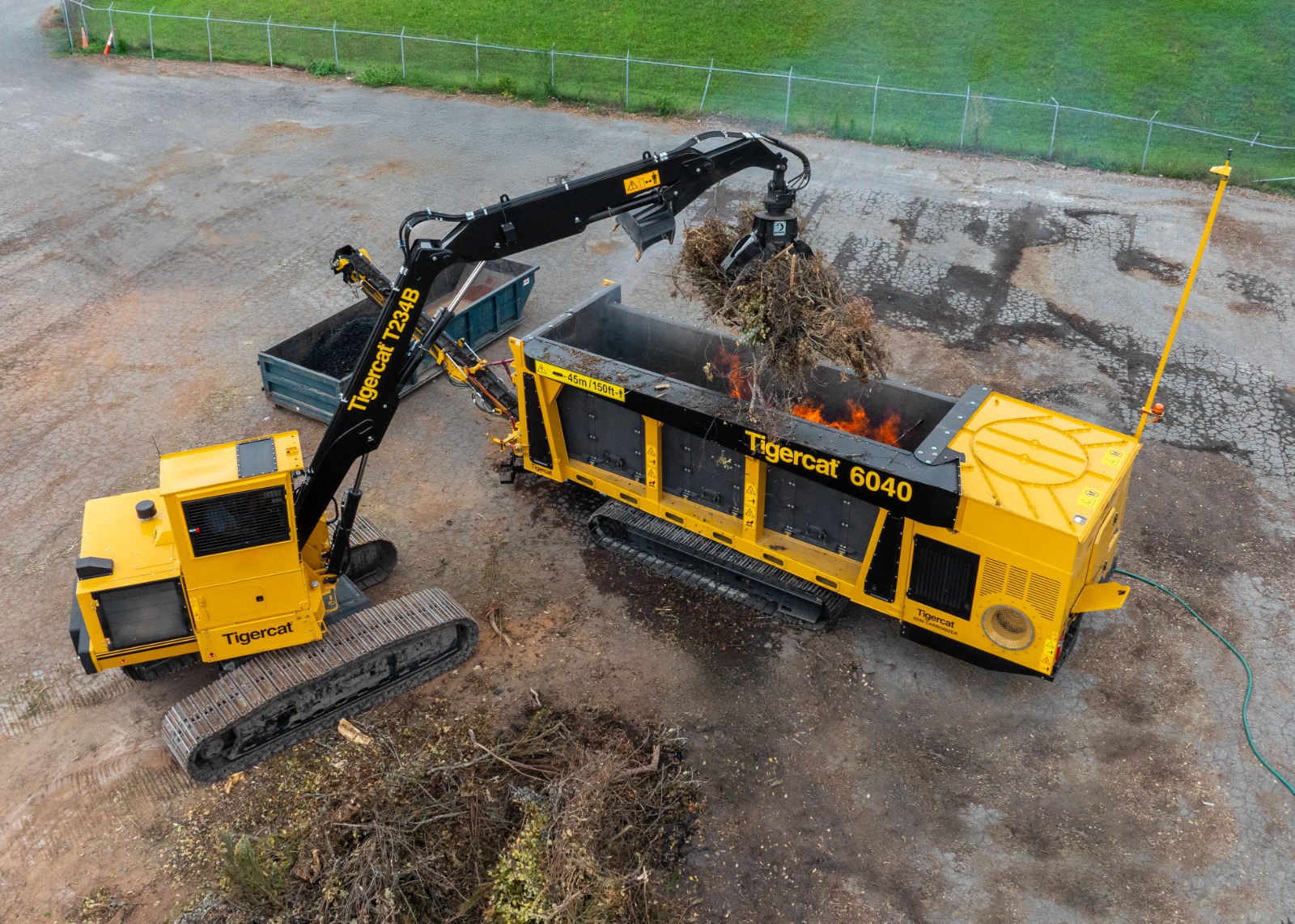To achieve transparency in forest data and strengthen their national forest monitoring systems (NFMS), nearly 20 countries from Latin America and the Caribbean are gathering this week in Guatemala for the second in-person meeting of the National Forest Inventory Network (IFN-LAC).
Organized by the National Forest Inventory Network of Latin America and the Caribbean (IFN-LAC), with support from the Food and Agriculture Organization of the United Nations (FAO), ICIFOR of INIA-CSIC, the Global Environment Facility (GEF) through the project "Global Capacity Building to Increase Transparency in the Forest Sector: Accelerating Capacity Development, Knowledge Sharing, and Awareness Raising," and the UK’s "Accelerating Innovative Forest Monitoring" program and the Spanish Agency for International Development Cooperation (AECID), the event aims to consolidate the institutionalization of forest data in the region and advance the voluntary updating of national reports for the Global Forest Resources Assessment (FRA) 2025.
During the opening of the event, Rafael Zavala, FAO Representative in Guatemala, emphasized that "forest inventories are the primary tool for a proper and relevant assessment, allowing us not only to better conserve and protect but also to better coexist with our own natural resources."
Supporting Flexible Reporting: Comparable, Accessible, and Decision-Oriented Data
One of the workshop’s key focuses is providing direct technical support to countries that choose to voluntarily update their FRA reports. FRA 2025 places particular emphasis on the use of nationally collected data that is transparent, standardized, and verifiable. The IFN-LAC Network serves as a technical reference space for this goal, promoting methodological harmonization and the generation of common indicators.
Updating national reports for the FRA responds to country commitments, which are voluntary and based on FAO membership, and stems from widely accepted international governance frameworks. These are technical cooperation agreements with strategic value for the data generated, showcasing national progress in conservation, restoration, and sustainable management of forest resources, while supporting public policy formulation and resource mobilization.
FRA data is used to assess compliance with forest-related goals, such as the Sustainable Development Goals (SDGs), the Paris Agreement, the Rio Summit (1992), and the Convention on Biological Diversity (CBD), which recognize the importance of forest data for sustainable development. Additionally, the United Nations Forum on Forests (UNFF) supports the FRA as an official data source to evaluate progress toward global forest objectives.
New Publication: Toward the Institutionalization of Forest Data
As part of the event, FAO is launching the new publication "Toward the Institutionalization of Forest Data: The Importance of Data Management and Sharing." This guide provides recommendations for integrating NFMS into institutional frameworks, improving data governance, and establishing effective protocols for data access, use, and dissemination.
The publication highlights the role of regional spaces, such as the IFN-LAC network, in building an interoperable, open, and results-oriented forest data system that meets both national needs and international demands for quality information.
Open Data, Innovation, and Regional Cooperation
Throughout the meeting, countries will explore innovative approaches for data collection and analysis—such as the use of non-destructive tools like terrestrial LiDAR and ForeStereo—and share experiences on making forest data publicly available, promoting open science, accountability, and informed decision-making.
A dedicated session will focus on sharing best practices in open forest data, linking regional efforts with global initiatives like FAO’s Microdata Catalog for Food and Agriculture (FAM).
This second meeting reaffirms the role of the IFN-LAC Network as a space for technical strengthening in the region. In this context, a training session on Harmonized Biodiversity Assessment will be held, facilitated by ICIFOR-INIA-CSIC, FAO, the Federal University of Amazonas (UFAM), and INFOR (Chile), continuing the learning initiated in 2022 on biodiversity indicators derived from National Forest Inventories.
Additionally, the Tenth Harmonization Meeting will take place, focusing on the volume variable, including practical sessions on using non-destructive technologies to update volume and biomass equations, enhancing countries’ technical capacities in advanced forest estimation.
Strengthening Networks to Facilitate Data Management
Beyond technical content, the event will serve to define the work plan for the next period of IFN-LAC Network activities, to be approved at the General Assembly in August. The second meeting consolidates South-South cooperation processes. The event also includes interaction with representatives from other regional networks, such as ENFIN (Europe), the North American Forest Commission’s (COFAN) national forest monitoring and inventory group, and the new National Forest Inventory Network being established in Asia, strengthening ties between regions facing common forest monitoring challenges.







Comments (0)
No comments yet. Be the first to comment!
Leave a comment